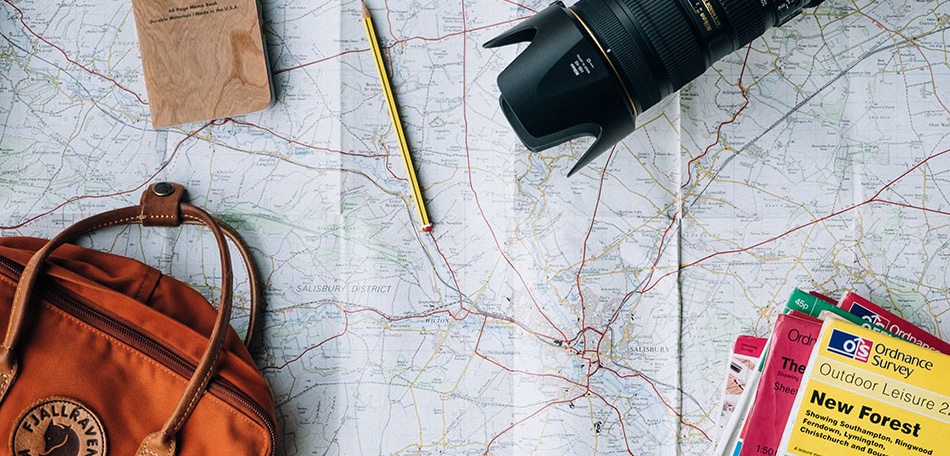In this article we are going to be talking about how studying abroad can be a huge plus for your resumé. If you are interested in finding out more about this topic, read on, GlobalExam will give all the essential information!
How to add studying abroad on your resume
Perhaps you spent some time studying abroad – it’s an excellent experience for you.
While you were hiking, exploring, and discovering new things – you perhaps never considered how you would explain this on your resume.
You return home, with a completely new outlook on life, and memories that will last a lifetime. So, after having such a fantastic time, and living such a vibrant and meaningful time – how can you use this time away to your advantage?
Of course, your study abroad is an incredible thing to do. However, using it to land you more opportunities can be challenging. This is especially true if you’re not
You might be wondering if you should put studying abroad on your resume. Perhaps you’re scared it might look like you took a break.
In short, yes, you should absolutely add your year away to your resume, but there is a guaranteed way to do it.
Cramming onto your resume irrelevant information – like learning a new language and experiencing a new culture can just be a headache. For this reason, we’ve compiled the best tips to put the classic “studied abroad” on your resume, which will look impressive and help you to get hired.
Do future employers care about studying abroad?
Of course, they do. With more people branching into higher education, employers are looking for applicants with new experiences.
Somebody who has traveled abroad likely has much more experience, knowledge, and understanding of certain things.
For instance, studying abroad shows a great deal of determination from an applicant. It proves that they’re willing to step outside of their comfort zone, try new things, and work that little bit harder.
It’s the ability to adapt to new surroundings quickly and effectively that looks fantastic to future employers.
Furthermore, most employers know all about the skills and experience you pick up when you’re studying abroad. However, it is your job to push them out there and really sell them. So, how can you do this?
The first step – Remembering your year abroad
The first thing you need to do is collect all your thoughts.
A year seems like a long time on paper, but it absolutely flies by – especially when you’re busy. It can be hard to remember everything that you did.
When you return from your trip, you need to make your way through all your photos, blogs, diaries, and other documents. It’s time to really take a look at what you did and reflect on the year that you had.
Was there anything that really shocked you? A specific accomplishment that you’re proud of? Even seemingly minor things like mastering the public transport system or ordering food in the language – these may have been fears or worries that you overcame.
You need to analyze your experience and identify the skills you crafted. How does this help you with your chosen career path?
Not only is it a fun, nostalgic experience – you’ll also be able to really put into perspective all your accomplishments.
The second step – Highlight your essential skills
As you know, resumes have to be short and snappy. You can’t share a year’s worth of blogs – your potential employers will not appreciate that.
There are vital skills that helped you through your year abroad. Skills like problem-solving, language skills and money management are all great things to include. You could even include cross-cultural communication if this is relevant to your field.
Of course, the skills you pick up are very subjective. This all depends on the subject that you studied, and any work experience you picked up.
Again, always remember that you have a minimal amount of space in your resume. Use powerful, emotive words to reiterate your point. For example, “cultivated,” “organized,” and “assisted.”
Studying abroad is an extremely demanding situation to put yourself through. You need to be extremely flexible, organized, and courageous. Adapting to university and cultural differences makes it a very new experience. This really does reflect well on you as a person, so remember to include it all in your resume.
Importantly, you shouldn’t dive into your study abroad in too much depth. Your resume should have a brief overview, your cover letter can explain a little bit more, and the interview process can clean up any loose ends.
For this reason, you should be prepared to elaborate on anything that you put on your resume.
Step three – put yourself in your employer’s shoes
When you look at your own resume, you’re often clouded by your personal achievements. You should always try to understand how another person may look at your resume.
Remember, employers are usually looking at multiple resumes at the same time. They don’t want to have to read through tenfold of information, just to find your critical skills.
When you’re trying to discover what you should put on your resume, you should consider what the most critical pieces of information are.
What information seems more important than others?
Structure your resume strategically. Highlight the most important and impressive pieces of information.
Don’t worry if you don’t necessarily have an experience that directly relates to the jobs you’re looking for. You’ll still possess relevant skills and traits that will prove to be helpful.
It takes a lot of skill to effectively articulate your experience and skills. You need to decide what you’re most valuable assets are.
This will be the work you produced, the culture you experience, or the courses that you took. If relevant, add any internships you undertook or awards that you won.
Regardless of how you structure your resume, mentioning that you studied abroad will automatically ensure that you’re seen as a motivated individual, that isn’t afraid to take risks.
Examples of skills you may have acquired
Students who study abroad may not even realize the valuable skills that they are picking up. By merely living and working in a foreign country, you’re growing and evolving in unimaginable ways.
Below are some examples of skills you may pick up along the way. Feel free to use these in your own resume.
- Leadership – To have the courage and independence to move abroad, you automatically have the qualities of a great leader. Confidence, emotional strength, and communication abilities.
- Self-reliance – Studying abroad means you have to use your own initiative to meet new people, explore new areas. Making the most of your time always requires independence and faith in yourself.
- Courage – Travelling and learning in a new country takes a lot of bravery. Of course, it’s scary -completing a study abroad program will only reveal how courageous and devoted you are.
- Adaptability – You need to adapt to new surroundings and cultures. This can be with food, weather, transportation, and currency. This skill is highly sought after in the world of work.
Conclusion
You shouldn’t be worried – you will have an abundance of opportunities post-studying abroad. Taking the risk and initiative to study overseas will always reflect well on your character and work ethic.
No employer will doubt a resume, which showcases an array of experiences and skills. Use your international studies as a sprinkling of glitter on your resume.
Picking out your best assets and structuring it well – this is how you can ensure success.
About the Author: Kristin Savage nourishes, sparks and empowers using the magic of a word. Now she works as a freelance writer at TrustMyPaper and GrabMyEssay, Kristin also does some editing work for Studicus. Kristin runs her own FlyWriting blog.



